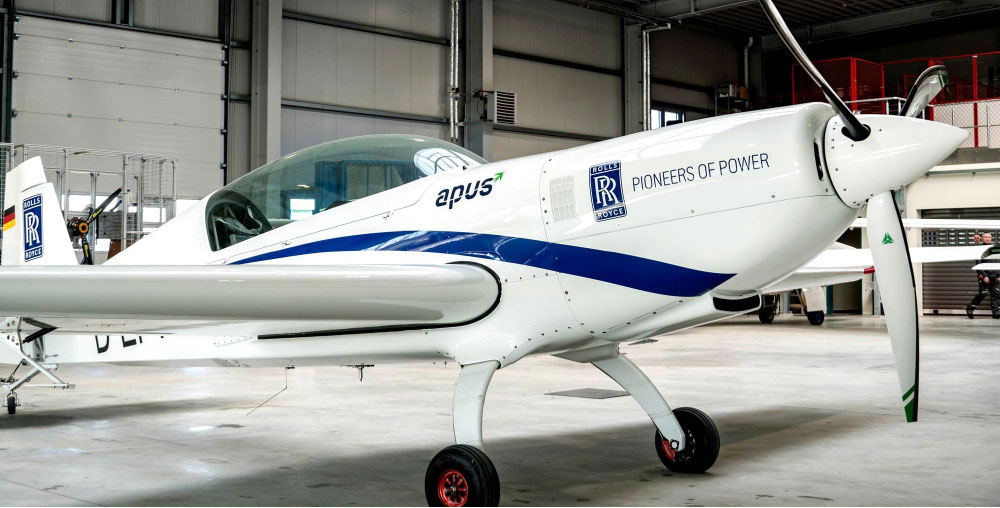


In order to lead the industry towards a net zero carbon future, Rolls-Royce took a bold step and joined the Race to Zero campaign at the 26th session of the United Nations Conference of the Parties (COP26).
By joining the “UN Business Ambition for 1.5°C” campaign, Rolls-Royce revealed its intention of achieving the net zero carbon target in its activities by 2030 and more importantly its plan to develop new products and technologies that will enable the sectors in which Rolls-Royce operates to attain the net-zero carbon target by 2050.
As part of this commitment, Rolls-Royce will:
- Harmonize its activities with the goals determined by the Paris Agreement in order to limit global warming to 1.5°C.
- Assume a leading role by using its technological capabilities in enabling the vital parts of economy including aviation, maritime, railway industry and power generation to reach the net-zero carbon target determined for 2050.
- Continue to proceed towards achieving carbon reduction targets and it will strive to accelerate its activities designed to this end.
- Carry on its research and development investments as part of its endeavors to develop novel solutions in achieving more effective products and in its fight against climate change.
- Publish a clear road map, including interim milestones, towards the realization of the net zero carbon emission target by the year 2050.
Rolls-Royce continues its search for clean, safe and competitive solutions to fulfilling society’s vital energy needs. This task is more critical than ever now, in a time where we are gradually coming out of the shadow of the pandemic. Rolls-Royce is aware of the fact that sustainable and net zero carbon energy is the most prominent factor in fulfilling the demands of a growing and more connected society. To meet this demand, Rolls-Royce aims to benefit from its position as a leading technology company in reaching its target of net zero emissions by 2050.
Rolls-Royce will determine its road map later this year, outlining the technology pathways through which they can achieve net zero carbon emissions across their operations, and the products they proudly pioneer.
“The COVID-19 crisis created a rapid and obvious pressure over our sector; however, the long-term challenges that are faced by our world are still valid. The world will need the power we generate to accelerate economic recovery after the pandemic. I absolutely believe that the call for this power to be sustainable and net zero carbon will be stronger than ever. In fact, responding to this call is quite difficult. There are few companies in the world that are capable of responding to this call. Rolls-Royce is one of those companies. We will use our capabilities to play a leading role in enabling the vital sectors in which we operate achieve net zero emissions by 2050. I believe this target will increase our competitive power towards the future”, said Warren East, CEO of Rolls-Royce.
Rolls-Royce will focus on the development of critical technologies and collaborating with the fuel industry to considerably increase the employability of alternative fuels with lower carbon. The company will also make gradual changes in engine efficiency. Moreover, Rolls-Royce will lead a consortium for the development of small modular nuclear power stations that are capable of providing competitive, clean and low-carbon energy and will focus on accelerating the development of new technologies and competencies for low-emission products of the future, including leading the electrification of flights. By continuing to improve the hybrid electrical systems it has developed in railway and maritime sectors, Rolls-Royce also intends to introduce these innovations to the aviation sector. With the ‘microgrid’ solutions it provides, Rolls-Royce aims to maintain supply security and back-up power, and therefore increase the benefits of renewable energy systems. Lastly, Rolls-Royce plans to achieve net zero greenhouse gas emission targets in its activities and facilities by 2030 by using 100% renewable energy, promoting closed-loop manufacturing techniques on precious metals and deploying groundbreaking microgrids to help achieve success in this ambitious initiative.
Nigel Topping, UN High Level Climate Action Champion for COP26, commented on Rolls-Royce’s commitment: “With 2.6 billion people and over half of global GDP now covered by net zero goals, Rolls-Royce is positioning itself to meet huge growth in demand for net zero transport and power. As a company operating in some of the hardest to abate sectors, this commitment of Rolls-Royce is a big act of industrial technology leadership.”
Limiting global warming to 1.5°C requires systemic changes in sectors and countries. As an industrial technology leader, Rolls-Royce is in quite a distinct position in areas of the economy and in sectors where maintaining carbon reduction is a considerable challenge.
Rolls-Royce’s commitment to solving complex issues, to constantly invest in research and development would not only align its activities with a net zero carbon future but also it would empower their sustainability for a promising future.